Alfa Romeo Junior vs Ford Tourneo Connect – Which car suits you better?
Both models have their strengths – but which one suits you more?
Compare performance, efficiency, price and space directly: Alfa Romeo Junior or Ford Tourneo Connect?
Costs and Efficiency:
When it comes to price and running costs, the biggest differences usually appear. This is often where you see which car fits your budget better in the long run.
Alfa Romeo Junior has a barely noticeable advantage in terms of price – it starts at 25700 £, while the Ford Tourneo Connect costs 27300 £. That’s a price difference of around 1671 £.
Fuel consumption also shows a difference: Ford Tourneo Connect manages with 0.50 L and is therefore significantly more efficient than the Alfa Romeo Junior with 4.80 L. The difference is about 4.30 L per 100 km.
As for range, the Alfa Romeo Junior performs clearly better – achieving up to 410 km, about 291 km more than the Ford Tourneo Connect.
Engine and Performance:
Power, torque and acceleration are the classic benchmarks for car enthusiasts – and here, some clear differences start to show.
When it comes to engine power, the Alfa Romeo Junior has a convincingly edge – offering 280 HP compared to 150 HP. That’s roughly 130 HP more horsepower.
In acceleration from 0 to 100 km/h, the Alfa Romeo Junior is significantly quicker – completing the sprint in 5.90 s, while the Ford Tourneo Connect takes 10.10 s. That’s about 4.20 s faster.
In terms of top speed, the Alfa Romeo Junior performs minimal better – reaching 206 km/h, while the Ford Tourneo Connect tops out at 186 km/h. The difference is around 20 km/h.
There’s also a difference in torque: Ford Tourneo Connect pulls barely noticeable stronger with 350 Nm compared to 345 Nm. That’s about 5 Nm difference.
Space and Everyday Use:
Cabin size, boot volume and payload all play a role in everyday practicality. Here, comfort and flexibility make the difference.
Both vehicles offer seating for 5 people.
In curb weight, Alfa Romeo Junior is slightly lighter – 1380 kg compared to 1542 kg. The difference is around 162 kg.
In terms of boot space, the Ford Tourneo Connect offers clearly more room – 1720 L compared to 415 L. That’s a difference of about 1305 L.
In maximum load capacity, the Ford Tourneo Connect performs convincingly better – up to 3105 L, which is about 1825 L more than the Alfa Romeo Junior.
When it comes to payload, Ford Tourneo Connect clearly takes the win – 818 kg compared to 420 kg. That’s a difference of about 398 kg.
Who wins the race?
The Ford Tourneo Connect proves to be wins the duel decisively and therefore becomes our DriveDuel Champion!
Ford Tourneo Connect is the better all-rounder in this comparison.
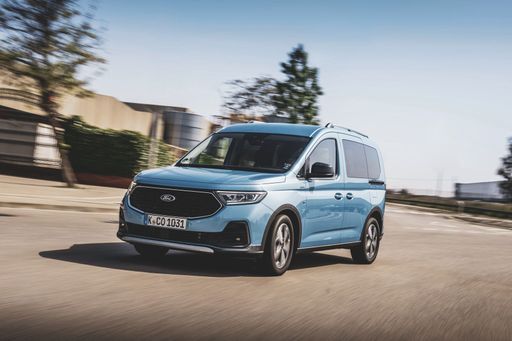 @ Ford Motor Company / Ford Media Center
@ Ford Motor Company / Ford Media Center
Ford Tourneo Connect
Alfa Romeo Junior
The Alfa Romeo Junior captures the essence of Italian design with its sleek lines and compact dimensions, making it an icon of elegance and performance. With a spirited driving experience and a charming retro aesthetic, it appeals to enthusiasts and casual drivers alike. This delightful car embodies the brand's rich heritage while remaining a fun and engaging option for those seeking a unique automotive experience.
details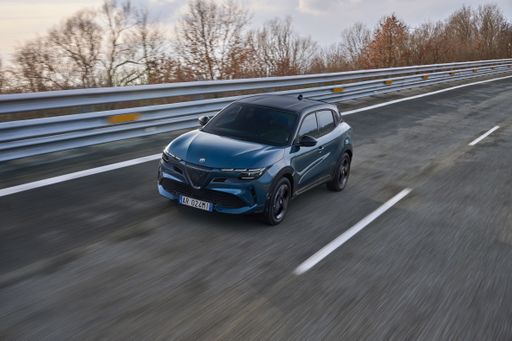 @ Alfa Romeo / Stellantis Media
@ Alfa Romeo / Stellantis Media
 @ Alfa Romeo / Stellantis Media
@ Alfa Romeo / Stellantis Media
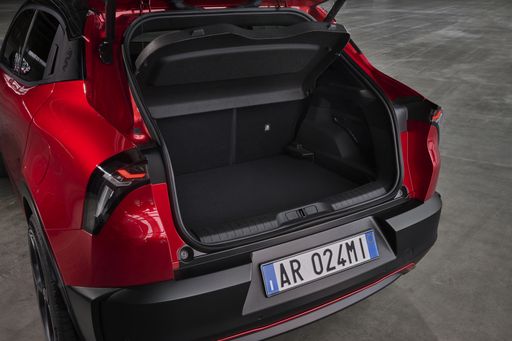 @ Alfa Romeo / Stellantis Media
@ Alfa Romeo / Stellantis Media
Ford Tourneo Connect
The Ford Tourneo Connect represents a versatile option in the people carrier segment, offering a blend of functionality and comfort for family or business use. Its design combines modern aesthetics with the practicality needed for daily operations, making it an appealing choice for those seeking a reliable and adaptable vehicle. Inside, the Tourneo Connect provides a spacious and well-thought-out interior, ensuring a comfortable driving experience for both driver and passengers.
details @ Ford Motor Company / Ford Media Center
@ Ford Motor Company / Ford Media Center
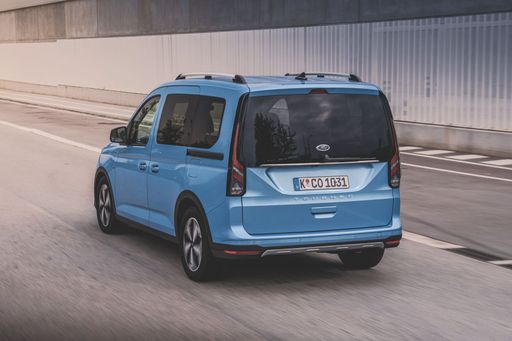 @ Ford Motor Company / Ford Media Center
@ Ford Motor Company / Ford Media Center
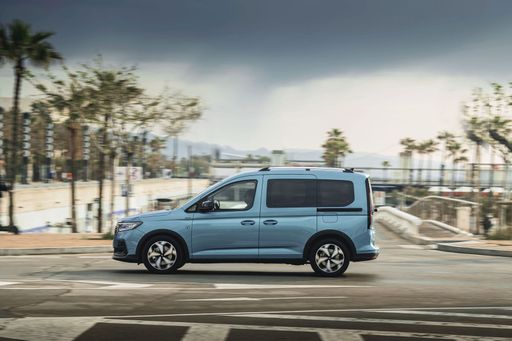 @ Ford Motor Company / Ford Media Center
@ Ford Motor Company / Ford Media Center
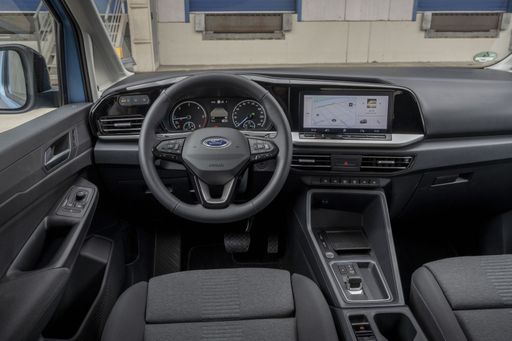 @ Ford Motor Company / Ford Media Center
@ Ford Motor Company / Ford Media Center
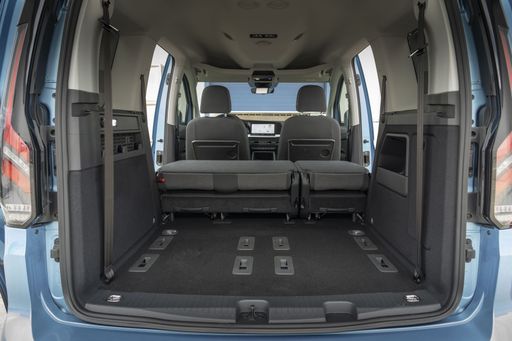 @ Ford Motor Company / Ford Media Center
@ Ford Motor Company / Ford Media Center
 @ Alfa Romeo / Stellantis Media
@ Alfa Romeo / Stellantis Media
|
 @ Ford Motor Company / Ford Media Center
@ Ford Motor Company / Ford Media Center
|
|
|
|
Costs and Consumption |
|
|---|---|
|
Price
25700 - 41600 £
|
Price
27300 - 41900 £
|
|
Consumption L/100km
4.8 - 5.4 L
|
Consumption L/100km
0.5 - 6.9 L
|
|
Consumption kWh/100km
15.1 - 17.5 kWh
|
Consumption kWh/100km
-
|
|
Electric Range
344 - 410 km
|
Electric Range
116 - 119 km
|
|
Battery Capacity
0.4 - 51 kWh
|
Battery Capacity
19.70 kWh
|
|
co2
0 - 119 g/km
|
co2
11 - 164 g/km
|
|
Fuel tank capacity
44 - 45 L
|
Fuel tank capacity
32 - 50 L
|
Dimensions and Body |
|
|---|---|
|
Body Type
SUV
|
Body Type
High Roof Estate
|
|
Seats
5
|
Seats
5
|
|
Doors
5
|
Doors
5
|
|
Curb weight
1380 - 1689 kg
|
Curb weight
1542 - 1781 kg
|
|
Trunk capacity
340 - 415 L
|
Trunk capacity
1213 - 1720 L
|
|
Length
4173 mm
|
Length
4500 - 4868 mm
|
|
Width
1781 mm
|
Width
1855 mm
|
|
Height
1505 - 1538 mm
|
Height
1833 mm
|
|
Max trunk capacity
1205 - 1280 L
|
Max trunk capacity
2556 - 3105 L
|
|
Payload
390 - 420 kg
|
Payload
563 - 818 kg
|
Engine and Performance |
|
|---|---|
|
Engine Type
Electric, Petrol MHEV
|
Engine Type
Plugin Hybrid, Petrol, Diesel
|
|
Transmission
Automatic
|
Transmission
Automatic, Manuel
|
|
Transmission Detail
Dual-Clutch Automatic, Reduction Gearbox
|
Transmission Detail
Dual-Clutch Automatic, Manual Gearbox
|
|
Drive Type
Front-Wheel Drive, All-Wheel Drive
|
Drive Type
Front-Wheel Drive, All-Wheel Drive
|
|
Power HP
136 - 280 HP
|
Power HP
102 - 150 HP
|
|
Acceleration 0-100km/h
5.9 - 9.1 s
|
Acceleration 0-100km/h
10.1 - 13.5 s
|
|
Max Speed
150 - 206 km/h
|
Max Speed
175 - 186 km/h
|
|
Torque
230 - 345 Nm
|
Torque
220 - 350 Nm
|
|
Number of Cylinders
3
|
Number of Cylinders
4
|
|
Power kW
100 - 207 kW
|
Power kW
75 - 110 kW
|
|
Engine capacity
1199 cm3
|
Engine capacity
1498 - 1968 cm3
|
General |
|
|---|---|
|
Model Year
2024 - 2025
|
Model Year
2024 - 2025
|
|
CO2 Efficiency Class
A, C, D
|
CO2 Efficiency Class
B, E, F
|
|
Brand
Alfa Romeo
|
Brand
Ford
|
What drive types are available for the Alfa Romeo Junior?
Available configurations include Front-Wheel Drive or All-Wheel Drive.
The prices and data displayed are estimates based on German list prices and may vary by country. This information is not legally binding.
